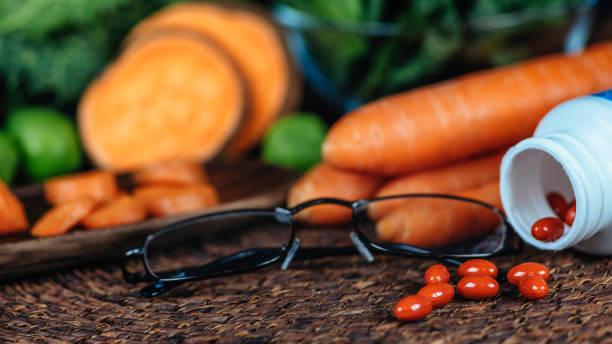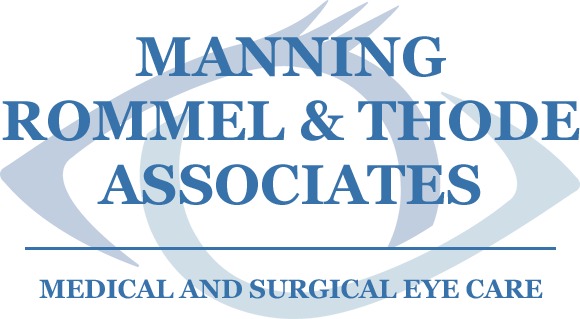Are you tired of squinting to read small print or struggling to see clearly in low light? If so, you’re not alone. Many people experience vision problems as they age, but did you know that your diet can play a significant role in maintaining healthy eyesight?

Whether you’re looking to prevent age-related macular degeneration, reduce the risk of cataracts, or simply want to keep your eyes in top shape, we’re here to provide you with the information you need to make informed dietary choices. Don’t let your vision deteriorate – start fueling your eyes with the nutrients they need for optimal health today!
The Importance of Eye Health
Good vision is a precious gift that allows us to not only see, but experience the world around us. Our eyes are complex organs that rely on a delicate balance of structures and processes to function properly. That being said, there are many factors that can negatively impact our eye health, including age, genetics, lifestyle choices, and even nutrition.
What is 20/20 Vision?
When we talk about “20/20 vision,” we refer to the standard measure of visual acuity. It means that when you stand 20 feet away from an eye chart, you can see what a person with normal vision can see at that distance. If you have 20/40 vision, for example, it means you need to be 20 feet away from the chart to see what a person with normal vision can see at 40 feet. Having 20/20 doesn’t necessarily mean you have perfect eyesight, but it shows that your eyes are functioning within the normal range.
Common Eye Problems and Their Causes
As we age, our eyes become more susceptible to conditions that can affect our vision. Some of the most common eye problems include age-related macular degeneration (AMD), cataracts, glaucoma, and diabetic retinopathy. These conditions can have a significant impact on our daily lives, making it difficult to perform routine tasks and enjoy activities we once loved.
The Role of Nutrition in Eye Health
While genetics and age play a significant role in eye health, research suggests that proper nutrition can actually help to prevent or slow down the progression of certain eye conditions. By consuming a diet rich in specific nutrients, we can provide our eyes with what they need to function optimally and maintain good vision.
Essential Nutrients for Maintaining Good Vision
Several essential nutrients play a key role in maintaining good vision and protecting our eyes from damage. These include vitamins A, C, and E, as well as minerals like zinc and selenium. Antioxidants, such as lutein and zeaxanthin, also play a crucial role in protecting the eyes and reducing the risk of age-related eye diseases.
Foods That Promote Eye Health
To ensure you’re getting the necessary nutrients for optimal eye health, it’s important to incorporate a variety of eye-healthy foods into your diet. Some of the best food sources for maintaining good eye health include dark leafy greens such as spinach and kale, colorful fruits and vegetables, oily fish such as salmon and tuna, nuts and seeds, and citrus fruits.
Supplements for Improving Eye Health
While a balanced diet is the best way to obtain essential nutrients, some individuals may also benefit from eye health supplements. These supplements are specifically formulated to provide the nutrients necessary to maintain good vision. However, it’s important to consult with a healthcare professional before starting any new supplements to ensure they are safe and suitable for your individual needs.
Lifestyle Habits for Protecting Your Eyes
In addition to proper nutrition, certain lifestyle habits such as the following can help protect your eyes and maintain good vision:
- Protecting your eyes from harmful UV rays by wearing sunglasses
- Giving your eyes regular breaks from screens
- Maintaining a healthy weight
- Avoiding smoking
- Staying hydrated
Tips for Incorporating Eye-Healthy Foods into Your Diet
Incorporating eye-healthy foods into your diet doesn’t have to be complicated!

Here are a few tips to help you get started:
- Add a serving of dark leafy greens to your meals each day. You can sauté spinach with garlic as a side dish, blend kale into your morning smoothie, or toss mixed greens into your salads.
- Swap out unhealthy snacks for more nutritious choices. Instead of reaching for a bag of chips, opt for a handful of nuts or seeds, which are rich in eye-protecting nutrients.
- Experiment with colorful fruits and vegetables. Try adding sliced bell peppers, carrots, or berries to your meals and snacks.
- Incorporate oily fish such as salmon or tuna into your diet at least twice a week. You can grill or bake them for a healthy and delicious meal.
- Stay hydrated by drinking plenty of water throughout the day. Dehydration can lead to dry eyes, so it’s important to keep your body hydrated for optimal eye health.
Taking Care of Your Eyes for a Lifetime of Clear Vision
Your eyesight is a valuable asset that deserves your attention and care. By understanding the importance of nutrition in maintaining good vision and incorporating eye-healthy foods into your diet, you can support your eye health and reduce the risk of age-related eye conditions.
Remember to consult with a healthcare professional for personalized advice and recommendations. If you’re in need of an eye doctor, there’s no need to search optometrists near me. Contact Manning, Rommel & Thode Associates for all of your eyecare needs. Located in Lancaster, PA we’ve been committed to the highest standards of care, treatment and surgical innovation for over 20 years.
Start making mindful dietary choices today and give your eyes the nutrients they need for optimal health and clear vision for years to come!
